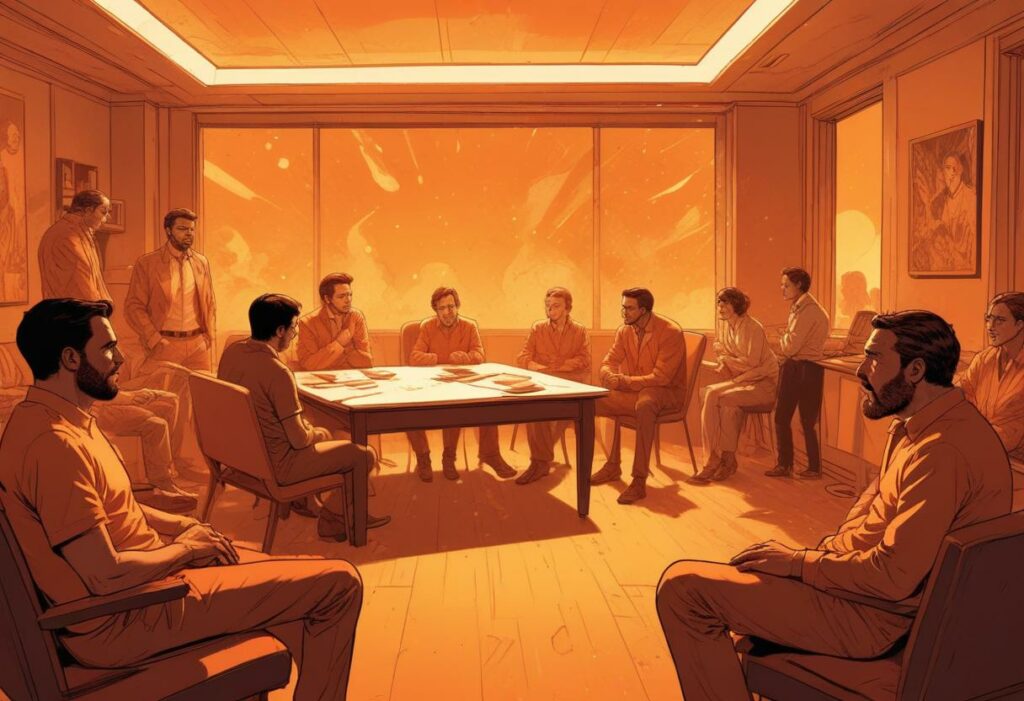DAO voting mechanisms represent a huge design space to reinvent collective decision-making for the digital age. Rather than just mimicking the rickety voting protocols of legacy institutions, we have opportunities to build awesome new systems from scratch optimally suited for decentralized communities.
In this article, we’ll dive right into the emerging palette of voting mechanisms, their quirks, and how they balance key priorities like security, participation, and plutocracy resistance. While none are perfect, combining their powers like Voltron could get us to voting nirvana!
On-Chain Vs Off-Chain Voting
The first big fork in the road is whether voting happens on or off the DAO’s blockchain.
On-chain means casting votes directly on the DAO’s chain like Ethereum in immutable smart contracts. The benefits of on-chain voting include security and transparency since every vote is recorded permanently on the public ledger. But costs and speed suffer with millions of voters.
Off-chain voting happens outside the main blockchain using apps like Snapshot. No slow chain needed! But at the cost of some security since votes could theoretically be manipulated behind the scenes.
Many DAOs use a hybrid – off-chain for informal polls and on-chain for official binding votes. Best of both worlds!
Token-Weighted Voting
This is the OG standard – the weight of your vote is proportional to the number of governance tokens you hold. While token-weighted voting aligns influence with skin in the game, it enables plutocracy if token distribution is lopsided or wealth becomes too influential.
Reputation-Weighted Voting
To balance pure plutocracy, votes can be multiplied by a reputation score reflecting merit and wisdom. This blends some egalitarian norms but requires voodoo quantifying reputation algorithmically. Early days!
Time-Locked Voting
Time-locked voting is a clever twist that seals votes for a set duration before tallying. Ultimately, this approach reduces vote buying and frontrunning but commits your choice before seeing others’ votes.
Futarchy, Conviction, and Other Wacky Stuff
And of course, there are some really outside the box ideas like futarchy with prediction market governance, quadratic voting pricing, and conviction voting where participants stake tokens to signal preferences. All of these options are largely unproven but provocative innovations.
Delegative Voting
You know the vibes – too busy to research every proposal? Delegate your vote to experts you trust! This facilitates reputation-based meritocracy and proxy voting. But opens collusion risks if delegates conspire. Tradeoffs baby!
Plutocracy Resistance Techniques
Amidst all this complexity one goal stays clear – avoiding centralized whale domination. Some tactics toward that end:
Reputation – Rein in whales by factoring merit.
Time locking – Dilutes influence across intervals.
Caps – Limit max % of voting power individuals can acquire.
Quadratic pricing – Higher vote costs for whale stacks.
Random sampling – Use randomized subsets rather than full votes.
Sybil resistance – Make fake accounts expensive and traceable.
Voting Tech – Snapshot, Aragon, and More
The tech enabling all these voting designs is still maturing but some leading platforms like:
Snapshot – Off-chain signaling votes via wallet signatures.
Aragon – On-chain native voting for Aragon DAO framework.
DAOHaus – Integrated voting for DAOs launched on their platform.
Tally – General purpose off-chain voting app.
Colony – Voting weighted by reputation for task assignment.
Conclusion – Let’s Keep Innovating!
Each approach makes tradeoffs between decentralized purity and factors like security, efficiency, identity, plutocracy resistance, flexibility, participation levels and more.
There’s no perfect solution yet, but combining these tools situationally gets us closer step-by-step. The cool part is we’re designing from scratch rather than just iterating on archaic status quo voting. That blank canvas freedom means voting can evolve as DAOs themselves mature over time through our experiences.
It’s still early days in decentralized governance. But with continued innovation, experimentation and sharing of ideas, we can collectively pioneer voting protocols that empower DAOs to achieve their ambitious potential. Let’s keep pushing limits and get creative reinventing collective decision-making. The future remains unwritten!





